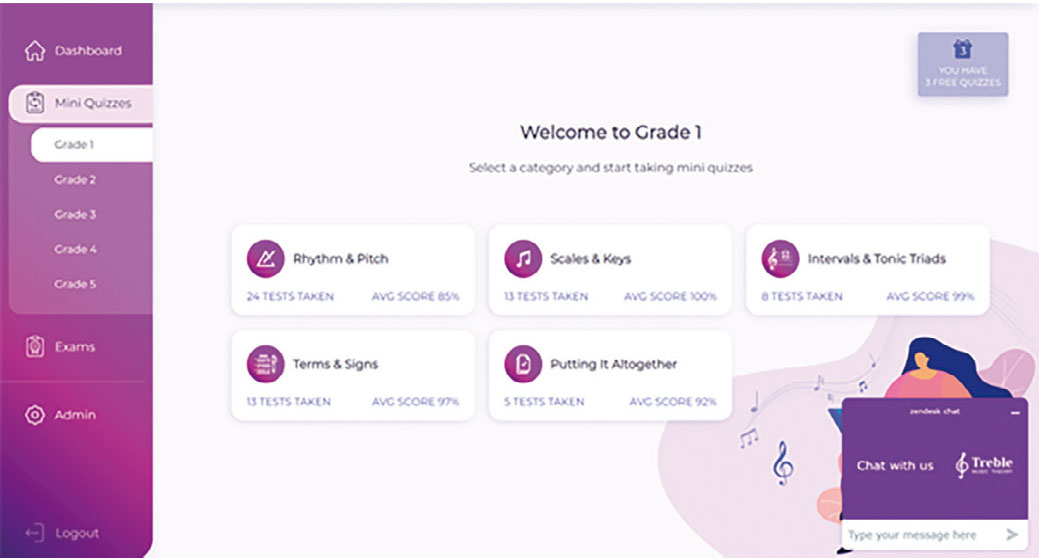
Welcome back young Mozart,’ reads the text on screen. I am neither young, nor Mozartian, but the greeting provides a pleasant introduction to Treble Music Theory, a new online tutorial service aimed at helping students pass their theory exams. Having slogged through many dry textbooks and past papers during my own theory lessons (see earlier comment re: youth) and subsequently struggled to find suitable resources for teaching, this smartly presented subscription platform promises to be a useful addition.
Using a pared back, uncluttered design, Treble Music Theory divides its content into three sections: Dashboard, where users track their progress; Mini Quizzes (basically short mock exams but less intimidating); and Exams, with 75 questions generated at random across the syllabus. The service focuses on Grades 1–5; a sensible approach, given that the upper-level grades require elements that are harder to deliver as multiple-choice questions. Access to the entire series costs £48.95 per month, with Grades 1 to 3 costing £7.99/month, Grade 4 at £9.99/month and Grade 5 at £14.99/month.

So many theory resources use illustrations and funky formats in an attempt to distract from the complexity of the actual theory. I've tried Disney-themed theory books, musical sudoku, flash cards, dominoes – all of which have their place, however, ‘nothing prepares for an exam like actual exam questions. The clean aesthetic of Treble Music Theory is very effective and user-friendly. Each topic has a clear symbol, for example ‘scales and keys’ uses two quavers, while ‘intervals and tonic triads’ are depicted by a treble clef and triad. The key is the same throughout the various grades – so ‘intervals and triads’ becomes ‘intervals, chords and cadences' providing a sense of continuity. (Sadly, there is a grammatical error in the ‘putting it altogether’ label, which should read ‘putting it all together’.)
There are ten questions per quiz across the grades, which feels about right. The styling is intuitive, with options to click to select an answer before clicking ‘next’ – useful practice for online assessment that is commonplace these days. Results are tracked on the dashboard, which records how many quizzes and exams have been completed and the student's average score. This information is also available on the mini quiz summary page – invaluable for tracking which topics need additional attention. Used in conjunction with appropriate learning materials – and a theory teacher, of course – Treble Music Theory is a brilliant tool.








